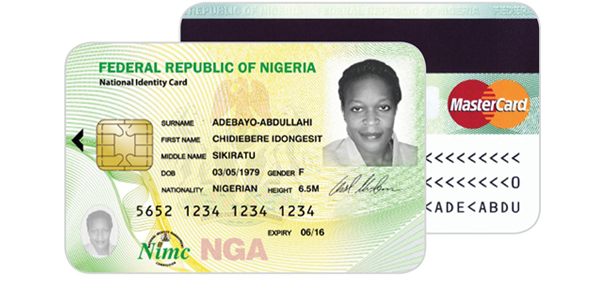National ID program rolls out, another debates data inclusion
13 May, 2013
category: Government, Smart Cards
National ID programs have had a big week, as the Nigerian National Identity Managment Commission (NIMC) rolled out a pilot program of 13 million national identity smart cards that have electronic payment capability.
The NIMC partnered with MasterCard on the project, which is the largest electronic payment system in Nigeria, and most financially inclusive in Africa. Access Bank Plc serves as the pilot issuer bank, and the payment processor is Unified Payment Services.
Nigerians aged 16 and up, along with residents who have been in the country for more than two years will receive the new cards.
The EMV chip + PIN cards feature 13 applications, including MasterCard functions. Cardholders will be able to deposit funds on the card, receive social benefits, use prepaid payment services and pay for goods and services wherever MasterCard is accepted. Cardholders may also withdraw cash from ATMs that accept MasterCard.
This is the first phase of a project that aims to reduce the use of cash in the Nigerian economy. When the National ID registration process is complete, NIMC plans to distribute over 100 million cards, which covers just over one-third of the country’s citizens.
Meanwhile, in Afghanistan, debate is breaking out over the inclusion of ethnicity as one of the datapoints on the country’s new national ID.
As reported by KERA News, ethnicity is a sensitive topic in the war-torn nation that has as many as 14 recognized ethnic groups.
The government plans to issue new national IDs, or “e-taskeras” that will have each citizen’s identity embedded in the electronic chip. It will not have the ethnicity listed on the card, though some prominent politicians feel so strongly that it should be, that they plan to refuse to register for the new card otherwise.
Still other government leaders feel that ethnicity should be removed from the e-taskera so that the country can move beyond thinking in terms of ethnicity and quotas. Today’s government allots jobs and services according to the ethnic population. While some citizens feel its important to include ethnicity on the cards for that reason, others believe it keeps the minorities marginalized and encourages discrimination.
Parliament still needs to authorize the program, but when it does, the government will launch the new cards.


